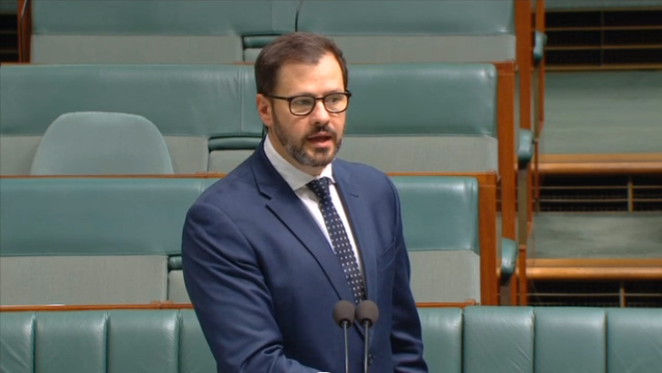Labor labels Netflix Tax a fig leaf


Legislation to apply the GST to digital products and other imported services cleared the lower house on Thursday, however it remains unclear whether it has bipartisan support to pass the Senate.
The government said the changes fix an anomaly created when the GST was introduced in 2000, before the growth of online services was understood.
Latest Australian news
Labor MP Ed Husic said the measure was a fig leaf to hide the government's lack of real action on multinational tax reform, and all it was doing was hitting 15-year-olds who were downloading music with the GST.
"It's really a sad joke," Husic said. "In the whole debate about multinational tax reform ... this is the big solution, this is the big answer, targeting a music download or a video download, and applying a GST to it, and that would fix multinational tax issues that are confronting the nation.
Liberal MP Melissa Price said many products would now pay their fair share of tax.
Labor is reserving its position on the bill until it's been examined by a Senate committee; however, Husic said today that the party would not oppose it as it was additional revenue.
"If they were fair dinkum about this problem, then they would look to the pricing that is being fostered upon the Australian consumers and small businesses and the way in which they have been hit," he said.
The Netflix Tax was introduced to Parliament last month, with Treasurer Scott Morrison saying at the time the Bill would ensure local businesses are not disadvantaged when selling to domestic consumers compared to their overseas counterparts.
"It'll be one of the rules of doing business with Australians in this country if you are seeking to sell them services from overseas -- you won't be able to avoid it," he said.
According to Morrison, the current GST rules create an uneven playing field that distorts consumer choice.
"It's also just not very fair ... to Australian businesses that are doing business with Australian consumers, and provides an unfair opportunity for overseas companies to take advantage of," he said.
"This legislation applies the OECD destination principle, which recommends that consumption should be taxed in the destination country of the imported digital products or services."
The legislation is predicted by the government to raise AU$350 million over four years.
With AAP